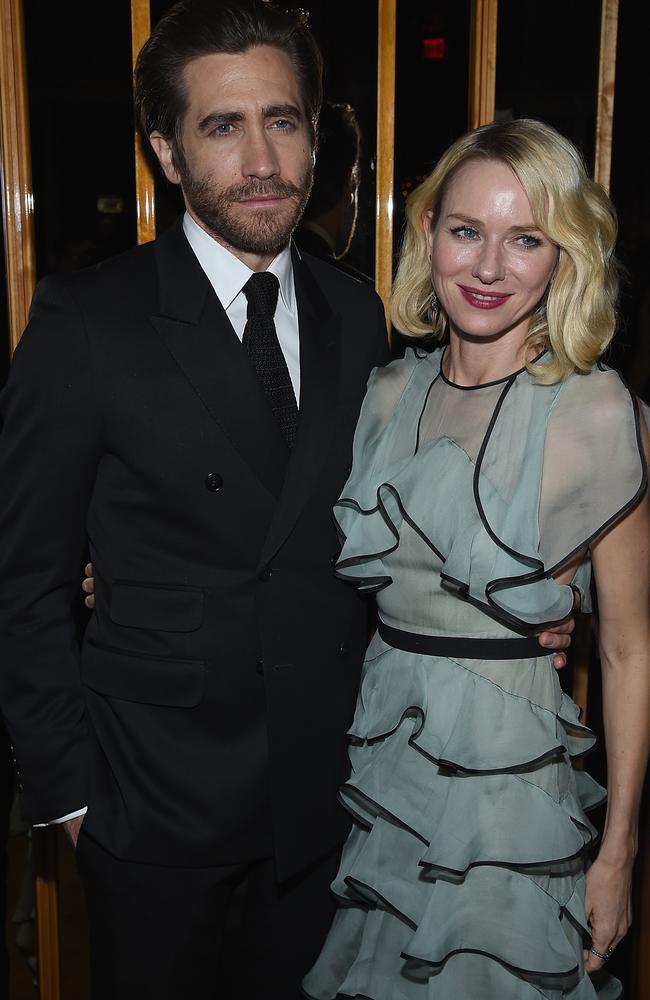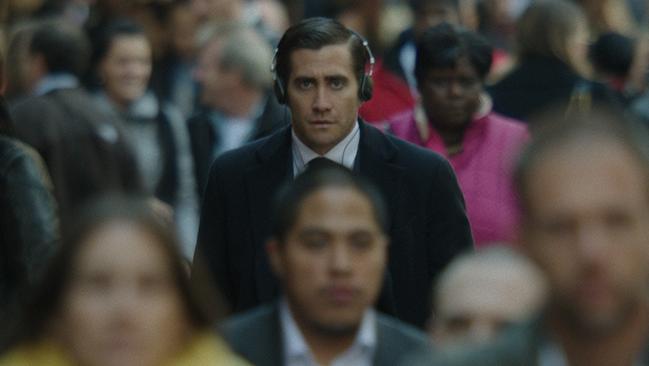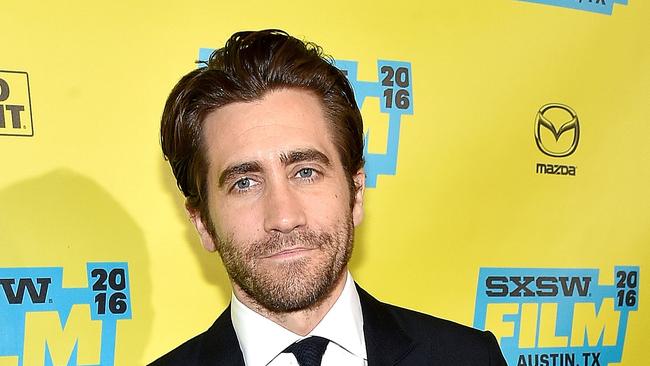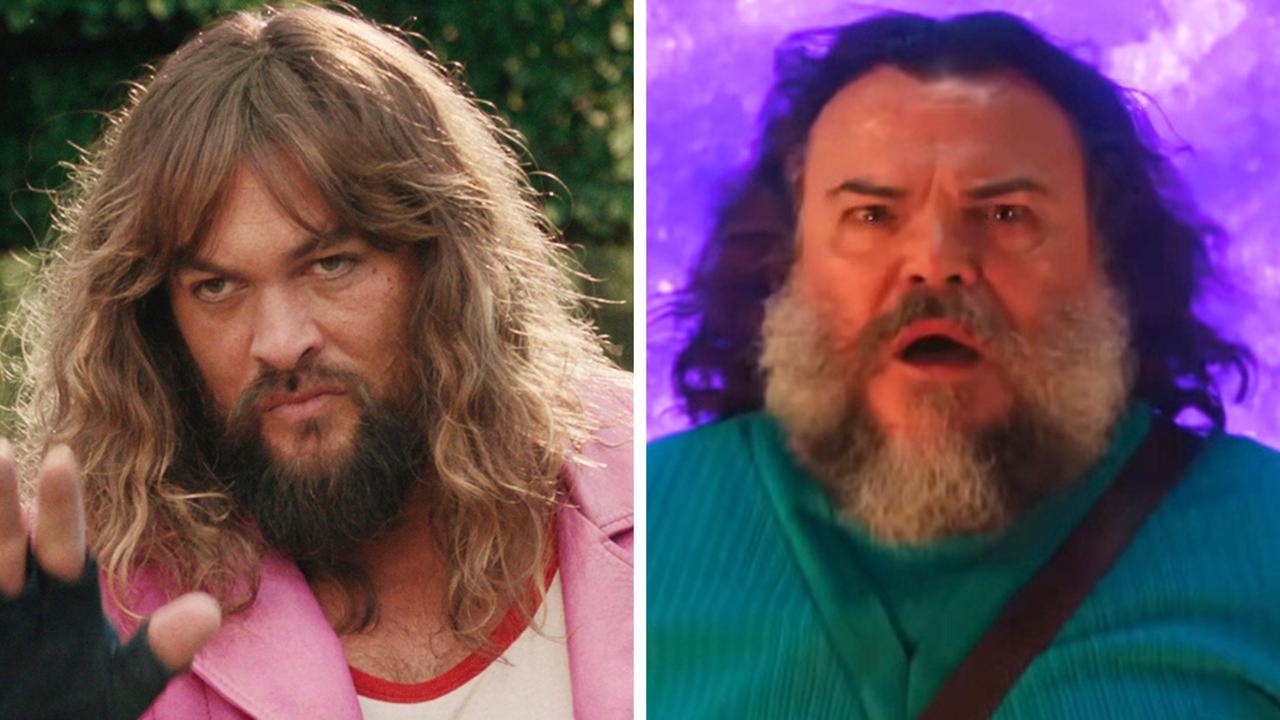Demolition star Jake Gyllenhaal on the ‘absurdity’ of fame
HE’S one of Hollywood’s hottest heart-throbs. But Demolition star Jake Gyllenhaal says he struggles with celebrity and has doubts about whether women like him.

New Movies
Don't miss out on the headlines from New Movies. Followed categories will be added to My News.
EVEN Jake Gyllenhaal has doubts about whether women like him.
And so it was that the perennial heart-throb was surprised that Australian Naomi Watts would consider co-staring with him.
The pair team up in Jean Marc Vallee’s new drama Demolition, which sees Gyllenhaal at his emotionally intense best, mining his ability to convey the tortured human condition in the form of grieving investment banker Davis Mitchell who has lost his young wife. Watts enters his broken world, helping him step through grief.

“I never thought she would want to work with me,” Gyllenhaal says of co-star Watts.
“When I found out she was doing a movie and she was cool with me doing it too, it was a nice feeling. I’m a huge admirer of her and think she’s extraordinary. So that’s that.”
Is there really anyone who doesn’t want to work with the man whose racked up some of Hollywood’s most complex male leads, from his hailed breakout as a confused Donnie Darko to Nightcrawler’s sociopathic Lou Bloom?
“There are definitely people who don’t (want to work with me), which makes anybody interesting,” Gyllenhaal says.
“I would much rather be myself which inevitably means some people wouldn’t want to work with me than be someone everyone wants to work with and not be myself.”

When we meet in an upscale New York hotel, Gyllenhaal is remarkably self-reflective, riffing on the falseness of fame and the importance of keeping it real.
“There’s a lot of what people write about me that is true, and a lot of what people write about me that’s not. But some things I don’t even know about myself people see,” he says.
Asked how he keeps things real, having lived so much of his life in the fame bubble, he terms the industry “absurd”.
“I recognise the absurdity of it,” he says.
“I recognise there are a lot of people who are more talented than I am, but I also recognise that hard work is really important.”
Gyllenhaal goes on to describe the movie industry as childish at times.
“I think I realised a long time ago when I look at the movie business you can very easily be kept very childish,” he says.
“You can kind of be kept in this womb even where we work — we’re all in this really fancy hotel rushing around - and so ofter people turn to me and say “oh you must be exhausted”.
“And I just think — what?!”

Gyllenhaal says he becomes tired of falseness and so tries to have regular conversations with people rather than allowing them to heap praise on him.
“There is so much falseness and…I can just feel it in my body, I get very tired when I’m not listening,” he says.
The role of Demolition’s Davis is the latest in a string of complex roles for Gyllenhaal, who has stepped through his career hand-picking complicated — even damaged — male leads.
In Southpaw he’d fallen from grace, in Nightcrawler he was morally-void sociopath and in Prisoners he was a hard nosed cop.
In Demolition, Gyllenhaal’s character pulls apart his life in the process of grief, shining a light on less conventional representations of sadness.
In one scene, he tells his doctor he feels numb through most of his body.
“There’s a lot of typical ways movies approach loss and grief — this one’s very different,” Gyllenhaal says.
“It approaches a character who is seemingly insensitive and talks about how apathy is really equal to empathy in a lot of ways and everyone has their own way of walking through the world with their own feelings.

“It’s a character you don’t relate to initially because it’s a character not used in movies.”
Gyllenhaal says he prides himself on hard work, but unusually did little preparation for this role at the insistence of Vallee.
“I admire hard work. I try to cultivate it,” he says.
“I tend to want to do a tonne of preparation whenever i’m doing a role - months and months, time to think and spend time on my own,” he says.
“I didn’t have that time with this movie. Jean Marc didn’t want me to. I’m not used to that. I make it a matter of pride that i’m totally prepared. I wasn’t.
“It’s a really interesting feeling. There was a sense of being unstable and unsure about a lot of things which eventually opened its way up into another discovery. Which is how the character is.”
Gyllenhaal says when he first began reading the script, he had doubts, but plot twists in character development reeled him in, along with a faith in Vallee’s work.
“I first started reading the script and it felt so conventional to me — I felt like I had seen that scene many time” he says, referring to scene in which his character’s wife dies.
“The accident and stuff was horrific but it almost felt cute.
“As I moved through the script every time I thought I was headed somewhere and I was about to roll my eyes, I’d then get side-swiped like the character does.”
He says part of the appeal of the movie was the way it breaks convention in portraying male grief.
“We are all in a place where we have to cater to convention because there’s a fear of breaking through that space,” Gyllenhaal says.
Originally published as Demolition star Jake Gyllenhaal on the ‘absurdity’ of fame



